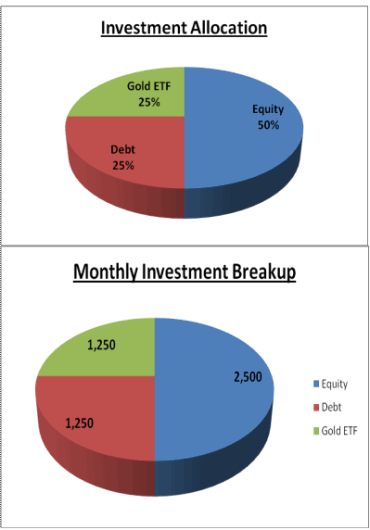 | « Back to article | Print this article |
Are Indian women 'financially empowered'?
Every year we celebrate March 8 as International Woman's Day with same enthusiasm when several programmes are organised internationally to celebrate it as a day when we take a bow for the Goddess with in all of us. But do things really change with every Women's Day? Have women become really independent: emotionally and financially? Has women empowerment really happened?
Explore this and more with Bienu Vaghela, chief editor, Apnapaisa.com.
Indeed this century has brought in dramatic changes in the status of women world over and women have proved their mettle in almost all the fields. Economic independence has contributed a great deal in this transformation of women.
To give you the background -- the first official celebration of Women's Day happened on March 19 in 1911 in Austria, Denmark, Germany and Switzerland. The decision to observe International Women's Day happened in 1910 at the second international conference of working women held in Copenhagen.
At the meeting, Clara Zetkin, leader of the Women's Office for the Social Democratic Party in Germany, proposed that every year in every country there should be a celebration on Women's Day to press for various demands made by women. Zetkins suggestion was unanimously approved and the decision was implemented for the first time the following year, in 1911. So, the hundred years for celebration of woman hood.
But has economic independence actually made women self-dependent in terms of taking their own financial decisions? Not really! Still they are very much dependent on their fathers and brothers (before marriage) and husbands (post marriage). They understand the economics of running the households but lags behind in terms of financial literacy especially in India.
Financial Literacy Index reveals that while 61.4 per cent women in India are financially literate while in Asia Pacific this percentage is 65.7 per cent. The parameters on which this Index rests are: Basic Money Management, Financial Planning and Investments. There is a need for women to become financially literate as only financial literate women can take care of her family and her future in a much better way than a financially illiterate one.
Not just the understanding of investments but also the understanding of complex financial products is important for actual empowerment. While working professionals have some understanding of complex financial products, it is the homemaker who takes great pains in running the household, but doesn't actually know how she can put her money to better use.
How prudent investments done every month can fetch her money which can ensure her a better education for children or a better life ahead? How she can better utilise the 'pin' money (the saving she makes out of the money given by her spouse every month to run the household).
In this I will touch upon the case of Garima Kulshrestha, homemaker based in Navi Mumbai who has shared her details with us and the financial planning team at Apnapaisa has put together a plan for her, which can be a reference point of many a homemakers across the country.
Click NEXT to read about Garima Kulshreshtha's financial plan
 Apnapaisa is a price comparison engine that allows consumers in India the ability to compare the EMI, interest rates and other fees for home loans, car loans, personal loans, business loans, credit cards, compare online quotes and features of life insurance, health insurance, car insurance, travel insurance and other general insurance policies in India.
Apnapaisa is a price comparison engine that allows consumers in India the ability to compare the EMI, interest rates and other fees for home loans, car loans, personal loans, business loans, credit cards, compare online quotes and features of life insurance, health insurance, car insurance, travel insurance and other general insurance policies in India.
Are Indian women 'financially empowered'?
Homemaker: 36 years
Gaurav Kulshreshtha -- her husband: IT Professional; earns Rs 8 lakh per year
Money given for household expenses: Rs 35, 000 per month
Pin Money: Rs 5,500 to Rs 6,000 per month
Pin Money spent on: Buying jewellery, arte facts for decorating the house, gifts for relatives, shopping and spending on annual vacations.
Knowledge level: No clue how she can channelise this money for meeting her financial objectives like a decent marriage for her children, renovating the house, more money on retirement. She is aware that her spouse has made some investment for education of children, some retirement plans and life insurance policies.
Children:
Maulik: Son, 11 years
Mouli: Daughter, 7 years
Assumption: Having own house
Are Indian women 'financially empowered'?
Action plan
Like many homemakers Garima also does not take active interest in finances or investment decisions which can be taken for better life ahead. So the Pin money which she is having every month of around Rs 6,000 can be better utilised and also it will not deprive her of monthly shopping excursions for which she can set aside a sum of Rs 1,000 and balance Rs 5,000 can be invested.
For equity investment:
It is recommended that Garima invests in Systematic Investment Plans (SIP) fore investment in mutual funds so that she becomes disciplined investor with investment of 5 years and above which will fetch her 12 per cent returns as a conservative estimate.
The biggest advantage to mutual funds is diversification, investing in all the major industry and company which will minimise her risk and opportunity to earn good returns.
Gold ETF :
Till now we women have purchased gold only in the form of jewellery. Garima can consider investing in gold by buying exchange traded gold fund operated via a demat account.
Debt instruments:
Recurring deposit in a bank or post office / Public Provident Fund where she can make monthly deposit of stipulated amount.
Life insurance:
As most of the financial commitment is taken up by her husband, Garima should make sure that her husband Gaurav has taken adequate life cover for his life and mediclaim cover for the entire family. The insurance cover should be at least 10 to 12 times of his annual income so that in case of any such eventuality, she will have adequate amount to take care of all her family responsibility. For that we recommend her buying term policy.
Health insurance:
Garima should make sure that her husband takes adequate health insurance for the entire family. We would suggest a health insurance cover of at least Rs 3 lakh individually for each and every family member.
This way we see that yearly surplus left from the pin money can be invested in a combination of long term investment avenues like equity mutual fund scheme and safe instruments like RD/ PPF account and gold ETF. Assuming a return of 12 per cent on equities of 12 per cent on equities, 7 per cent in debt and 8 per cent in gold Garima will be able to accumulate a corpus of Rs 10,20,000 after a period of 10 years if she goes by the asset allocation by investing her pin money.
Though Garima is not clear about her goals for which she wants to invest, she understands that setting goals and following a plan is key to the financial success, even for the homemakers like her.
As a woman I will not discourage her from splurging money to enhance the feel good factor which is very important for any home maker to increase the happiness quotient of her family. But she should certainly invest in investment avenues which can provide her financial security and also provide her good returns in future.
Believe me this will give you a high, may be of a different kind!


